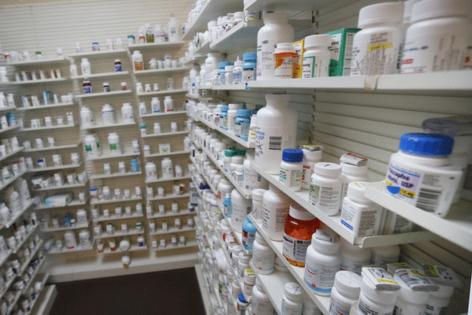Commentary: How Donald Trump can safeguard our drug supply
Published in Op Eds
The Trump administration believes — correctly — that the existing prescription drug supply chain endangers our national security, especially when global demand surges as it did during the COVID-19 pandemic.
China, a military adversary under a communist regime, plays a key role in 90% of generic antibiotics and 8% of all active pharmaceutical ingredients consumed by Americans. According to The Brookings Institution, 3.5% of all units of prescription generic solid oral drugs consumed in the United States and 11.8% of all units of prescription generic sterile injectables consumed in the United States are manufactured and finished in China. Ninety-three percent of prescriptions in America are filled with generics.
In the event of a conflict, or even just trade tensions, China could restrict drug exports — as it was willing to do for rare earth minerals— and threaten hundreds of thousands of American patients. The rare earth mineral tensions leave no doubt that China is perfectly willing to go after our most vulnerable targets. Leaving our citizens vulnerable to such a threat to our medicine cabinet is unacceptable. But there is no such thing as a free lunch, so reducing the risk of this threat may be costly.
The real question is how to limit the cost of the lunch. In other words, how to re-shore pharmaceutical production — or at least decrease dependency on adversarial countries such as China — while minimizing the costs to patients, American innovation and our economic competitiveness. There will be an inherent trade-off between securing a domestic supply and the price paid to access the supply. To thread that needle, the Trump administration ought to concentrate on moving pharmaceutical production out of China while helping U.S. patients by keeping allies such as Europe, India and Japan out of the tariff crossfire.
By creating additional costs for businesses that source drugs and ingredients from China, the United States could harness the power of markets and send a price signal. Tariffs that harm Chinese production are one way to do so. Tariffs imposed on China serve as what economists refer to as “Pigouvian taxes” — taxes aimed at raising the costs of socially harmful activity, in this case, Chinese leverage over American patients. Such taxes to limit harmful activity are present all over our economy, e.g., government fines for criminal activities.
If the Pigouvian tariffs on harmful countries are high enough, manufacturers will have a fiduciary duty to shift pharmaceutical production to either the United States or some allied nation. In the long term, that would bolster America’s economic independence and ensure Beijing doesn’t control U.S. patients’ access to lifesaving drugs if it engages in adversarial actions with the United States.
But administration officials would be wise to minimize the downsides of untargeted tariffs. Blanket tariffs on medicines and active pharmaceutical ingredients imported from allies such as Japan and Europe — rather than just Chinese ones — would undermine instead of secure our economic and national security.
Due to recent price control regulations in the pharmaceutical industry, drug companies will be more limited in their ability to pass along increased costs for the blockbuster drugs that finance their large sets of failures in the development pipeline. Tariffs may, therefore, cause drugmakers to “ eat the cost” and cut spending in other areas, as Eli Lilly CEO David Ricks recently put it. Research and development budgets would be the first items slashed.
Having tariffs cut American innovation this way will not bolster our security. Indeed, gutting American research and development spending would hobble the administration’s efforts to counter China, which is rapidly becoming a global power in the biotech industry. It now helps develop over a quarter of new drugs worldwide.
It would also undermine the president’s efforts to spur investment in domestic drug innovation and production. Biotech firms have already announced hundreds of billions of dollars in planned U.S. manufacturing investments. By raising costs for these companies and destabilizing the supply chains their manufacturing plants rely on, blanket pharmaceutical tariffs would discourage future job-creating investments.
Imposing tariffs on allies such as the European Union — which accounts for around 20% of all U.S.-consumed pharmaceutical ingredients — would push them into China’s open arms. Instead, the United States and its allies should make a collective effort to restrict Chinese access to American and European markets, rather than vice versa.
Boosting domestic drug production and ensuring supply chain security are important goals. And Trump’s foresight on this issue will pay dividends for Americans given our adversary relationship with China. The COVID-19 pandemic revealed just how dangerous it is to lack domestic medical supplies during global demand spikes, and similar shortages could be imposed on us by a noncooperative relationship with China.
By targeting China with cost-increasing Pigouvian tariffs and sparing allies, Trump can ensure that the national security gains from drug tariffs don’t come at the expense of our patients gaining from America’s scientific and economic leadership in this vital industry.
____
Tomas J. Philipson is an economist at the University of Chicago and served as a member and acting chairman of the president’s Council of Economic Advisers from 2017 to 2020.
___
©2025 Chicago Tribune. Visit at chicagotribune.com. Distributed by Tribune Content Agency, LLC.
























































Comments